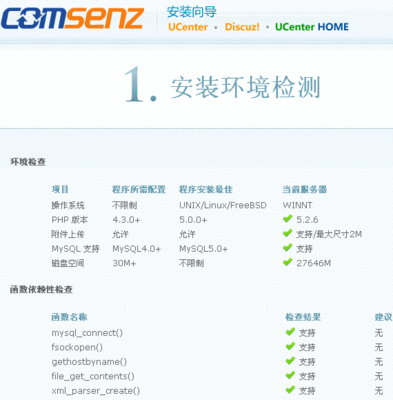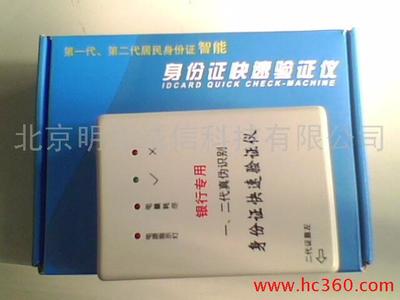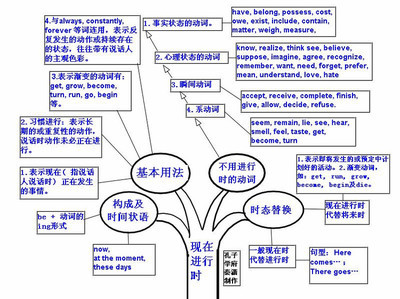原创文章,转载请注明出处http://blog.sina.com.cn/s/blog_65db99840100s4yb.html
=====================================================
在UCH中,模板与动态数据分离,所以在很多php文件的最后,我们会看到包含了模板文件,如cp_blog.php最后有include_once template("cp_blog");
在下面的代码中,命名有规律。$tpl是没有后缀名的,$tplfile是后缀为htm的模板文件,$objfile是后缀为php的缓存文件
UCH里使用模板的流程是:
在php代码中获取动态数据,然后include_once template($tpl)
template函数解析模板文件$tplfile,返回缓存文件$objfile。
template函数中调用parse_template函数解析$tplfile,
$tplfile里有UCH定义的一套语法,在parse_template函数里可以看到,有<!-- templatename--><!—block/name-->等。这些语法在parse_template中都会被替换成对应的函数,如readtemplateblocktags等,这些函数也都位于function_template.php中。
这里有点点纠结的就是,模板文件中可能还通过<!-- templatename-->包含了其他的模板文件,所以在parse_template中要两次调用preg_replace,第一次读模板文件$tplfile所包含的子模板文件name,第二次是读子模板文件name中再包含的孙子模板文件。UCH中至多有3层模板包含关系,即父亲->儿子->孙子,所以不需要第三次调用preg_replace来读取孙子模板文件可能包含的重孙模板文件了。
template函数在function_common.php中定义
function template($name) {
global $_SCONFIG, $_SGLOBAL;
if(strexists($name,'/')) {
$tpl = $name;//$name是完整目录的情况
} else {
$tpl ="template/$_SCONFIG[template]/$name";
$name只是一个文件名的情况,$tpl类似template/default/cp_blog或者template/blue/cp_blog
默认的模板风格是default,但是如果用户选择了其他风格,$_SCONFIG[template]就会变成blue之类的其他值
在首页的右下角可以选择模板风格
}
$objfile =S_ROOT.'./data/tpl_cache/'.str_replace('/','_',$tpl).'.php';
缓存文件名,$objfile类似data/tpl_cache/template_default_cp_blog.php或者data/tpl_cache/template_blue_cp_blog.php
if(!file_exists($objfile)) {
include_once(S_ROOT.'./source/function_template.php');
parse_template($tpl);
//如果缓存文件不存在,则对模板文件进行解析
}
return $objfile;
}
parse_template函数在function_template.php中定义
function parse_template($tpl) {
global $_SGLOBAL, $_SC, $_SCONFIG;
//包含模板
$_SGLOBAL['sub_tpls'] = array($tpl);
$tplfile = S_ROOT.'./'.$tpl.'.htm';
$tplfile类似template/default/cp_blog.htm或者template/blue/cp_blog.htm
$objfile =S_ROOT.'./data/tpl_cache/'.str_replace('/','_',$tpl).'.php';
$objfile类似data/tpl_cache/template_default_cp_blog.php或者data/tpl_cache/template_blue_cp_blog.php
//read
if(!file_exists($tplfile)) {
$tplfile =str_replace('/'.$_SCONFIG['template'].'/', '/default/',$tplfile);
//如果非默认模板风格的某个模板文件不存在,那么就改用default风格的该模板文件
}
$template = sreadfile($tplfile);
//读入模板文件内容
if(empty($template)) {
exit("Template file : $tplfile Not found or haveno access!");
}
//模板
$template =preg_replace("/<!--{templates+([a-z0-9_/]+)}-->/ie","readtemplate('\1')", $template);
这就是定义UCH的模板语法了,模板页中的<!--{templatename}-->
被替换成readtemplate(name),readtemplate函数也在function_template.php中定义。name就是([a-zA-Z0-9_/]+)
为什么多了A-Z呢,因为"/<!--{templates+([a-z0-9_/]+)}-->/ie"最后的i选项表示不区分大小写的正则匹配
python里的正则表达式分组,似乎就是用1来表示第一组,这里用了\1
\1为什么又要用单引号裹起来呢,这是因为readtemplate函数的参数要是一个字符串
//处理子页面中的代码
$template =preg_replace("/<!--{templates+([a-z0-9_/]+)}-->/ie","readtemplate('\1')", $template);
//解析模块调用
$template =preg_replace("/<!--{block/(.+?)}-->/ie","blocktags('\1')", $template);
<!--{block/name}-->被替换成blocktags(name)
name就是(.+?).匹配除换行符外的任意字符,+表示出现一次或多次
?表示懒惰匹配,不然后面的}->都会被.+匹配掉
//解析广告
$template =preg_replace("/<!--{ad/(.+?)}-->/ie","adtags('\1')", $template);
<!--{ad/name}-->被替换成<!--adtags(name)-->
如space_doing.htm里有一个<!--{ad/header}-->被替换成了<!--AD_TAG_1-->
//时间处理
$template =preg_replace("/<!--{date((.+?))}-->/ie","datetags('\1')", $template);
<!--{date(name)}-->被替换成datetags(name)
如space_doing.htm里有一个
<!--{date('m-dH:i',$basevalue[dateline],1)}-->被替换成了<!--DATE_TAG_7-->
//头像处理
$template =preg_replace("/<!--{avatar((.+?))}-->/ie","avatartags('\1')", $template);
<!--{avatar(name)}-->被替换成avatartags(name)
如space_doing.htm里有一个<!--{avatar($_SGLOBAL[supe_uid],small)}-->被替换成了<!--AVATAR_TAG_10-->
//PHP代码
$template =preg_replace("/<!--{evals+(.+?)s*}-->/ies","evaltags('\1')", $template);
<!--{evalphp_expression}-->被替换成evaltags(php_expression)
php_expression就是(.+?)而且这里的.匹配包括换行符在内的一切字符这是由/ies中的s选项确定的
如space_doing.htm里有一个<!--{eval echoformhash();}-->被替换成了<!--EVAL_TAG_16-->
//开始处理
//变量
$var_regexp ="((\$[a-zA-Z_x7f-xff][a-zA-Z0-9_x7f-xff]*)([[a-zA-Z0-9_-."'[]$x7f-xff]+])*)";
一开始为什么要用三个,我搞不明白。试验了一下,\$匹配的就是$,而改成$却没能匹配模板文件里的变量名。这个我还没搞明白。
$var_regexp匹配变量名
[a-zA-Z_x7f-xff]变量名以字母或下划线或汉字开头
x7f-xff这个让人非常困惑,到底是想匹配什么呢?难道是想匹配扩展ASCII码吗?0x7f-0xff确实是扩展ASCII码表的范围,但显然没人会用这些控制字符去当变量名。
我这个UCH是UTF-8版本的,从UCS-2(就是现在通用的Unicode)到UTF-8的编码方式如下:
UCS-2编码(16进制) | UTF-8字节流(二进制) |
0000 -007F | 0xxxxxxx |
0080 -07FF | 110xxxxx10xxxxxx |
0800 -FFFF | 1110xxxx10xxxxxx 10xxxxxx |
前面的0000-007F是兼容ASCII码的
汉字的unicode编码在0080-FFFF里,转换成UTF-8后的字节是
110xxxxx或10xxxxxx或1110xxxx,在0x01111111-0x11111111范围内,也即0x7f-0xff。
更精确地,这个匹配变量名开头的部分可以写成[a-zA-Z_xc0-xef],因为汉字的开始字节只可能是110xxxxx或1110xxxx,范围就是0xc0-0xdf和0xe0-0xef
[a-zA-Z0-9_x7f-xff]*比变量名的开头字节的允许取值范围多了数字,和C语言是一样的,变量名不能以数字开头
更精确地,这里可以写成[a-zA-Z0-9_x80-xef]*因为这里汉字的字节可能是110xxxxx或1110xxxx或10xxxxxx,比0xc0-0xef多了10xxxxxx,即0x80-0xbf,合起来就是0x80-0xef
([[a-zA-Z0-9_-."'[]$x7f-xff]+])*
变量可能是数组形式的,如$name1[$name2],$[a-zA-Z_x7f-xff][a-zA-Z0-9_x7f-xff]*匹配了$name1,后面的[$name2]怎么匹配呢?我一开始以为是[$[a-zA-Z_x7f-xff][a-zA-Z0-9_x7f-xff]],因为[]里面也应该是一个变量名。
但是变量可能是嵌套数组形式的,如$name1[$name2[$name3[$name4]]],此时用$[a-zA-Z_x7f-xff][a-zA-Z0-9_x7f-xff]来一个个匹配变量名明显不可行。所以只是用[]把可能的字符都框起来,希望程序员不要写太扯淡的变量名了。
$template =preg_replace("/<!--{(.+?)}-->/s","{\1}",$template);
形如<!--{name}-->的字符串被替换成{name}
前面解析广告,时间处理等产生的<!--EVAL_TAG_15-->等都不匹配,仍然保留
name就是(.+?)这里的.匹配包括换行符在内的所有字符(有/s选项)?表示懒惰匹配
$template = preg_replace("/([nr]+)t+/s","\1",$template);
去掉换行回车后的制表符
$template =preg_replace("/(\$[a-zA-Z0-9_[] '"$x7f-xff]+).([a-zA-Z_x7f-xff][a-zA-Z0-9_x7f-xff]*)/s","\1['\2']",$template);
形如$name1.name2替换成$name1[name2],不要搞成了$name1['name2'],'\2'和"\1"都是正则表达式的后向引用。可是我在模板文件中还没找到例子
$template =preg_replace("/{(\$[a-zA-Z0-9_[]'"$.x7f-xff]+)}/s","<?=\1?>", $template);
形如{$name1}替换成<?=$name1?>
如space_doing.htm里有{$_SN[$space[uid]]}被换成了
<?=$_SN[$space[uid]]?>
$template = preg_replace("/$var_regexp/es","addquote('<?=\1?>')",$template);
将没有被{}包裹的变量名替换成addquote('<?=\1?>')
addquote的作用是将类似[name]转换成[‘name’]
如space_doing.htm里有{if $space}被替换成了{if<?=$space?>}
但是这样也有副作用,比如space_doing.htm里有{$_SN[$space[uid]]},在上一条语句中被替换成了<?=$_SN[$space[uid]]?>,在这又被替换成了<?=<?=$_SN[$space['uid']]?>?>
$template =preg_replace("/<?=<?=$var_regexp?>?>/es","addquote('<?=\1?>')",$template);
消除上一条语句的副作用,将<?=<?=$_SN[$space['uid']]?>?>换成<?=$_SN[$space['uid']]?>
//逻辑
$template =preg_replace("/{elseifs+(.+?)}/ies","stripvtags('<?php } elseif(\1) {?>','')", $template);
{elseifexpression1}替换成stripvtags('<?php } elseif(expression1) {?>','')
stripvtags的作用是将类似<?=$name?>替换成$name
$template = preg_replace("/{else}/is","<?php } else { ?>",$template);
{else}替换成<?php } else {?>
//循环
for($i = 0; $i < 5; $i++){
$template =preg_replace("/{loops+(S+)s+(S+)}(.+?){/loop}/ies","stripvtags('<?php if(is_array(\1)) { foreach(\1as \2) {?>','\3<?php} }?>')", $template);
解析loop

将类似{loop array1 key1} expression1{/loop}替换成
stripvtags(
<’?php if(is_array(array1)) {foreach(array1 as key1){?>’,
‘expression1<?php } }?>’
)
如space_doing.htm里将
<title>{if<?=$_TPL['titles']?>}{loop<?=$_TPL['titles']?><?=$value?>}{if<?=$value?>}<?=$value?>- {/if}{/loop}{/if}{if<?=$space?>}<?=$_SN[$space['uid']]?>-{/if}<?=$_SCONFIG['sitename']?>
替换成了
<title>{if<?=$_TPL['titles']?>}<?php if(is_array($_TPL['titles'])){ foreach($_TPL['titles'] as $value) {?>{if<?=$value?>}<?=$value?>- {/if}<?php } }?>{/if}{if<?=$space?>}<?=$_SN[$space['uid']]?>-{/if}<?=$_SCONFIG['sitename']?>
$template =preg_replace("/{loops+(S+)s+(S+)s+(S+)}(.+?){/loop}/ies","stripvtags('<?php if(is_array(\1)) { foreach(\1as \2 =>\3){ ?>','\4<?php} }?>')", $template);
解析loop
将类似{loop array1 key1 value1} expression1{/loop}替换成
stripvtags(
<’?php if(is_array(array1)) {foreach(array1 askey1=>value1){?>’,
‘expression1<?php } }?>’
)
如space_doing.htm里将
{loop<?=$moodlist?><?=$key?><?=$value?>}
<li>
<div><ahref="space.php?uid=<?=$value['uid']?>&do=doing"><imgsrc="<!--AVATAR_TAG_14-->"alt="<?=$_SN[$value['uid']]?>"/></a></div>
<p><ahref="space.php?uid=<?=$value['uid']?>"title="<?=$_SN[$value['uid']]?>"><?=$_SN[$value['uid']]?></a></p>
<p><!--DATE_TAG_9--></p>
</li>
{/loop}
替换成了
<?php if(is_array($moodlist)) {foreach($moodlist as $key => $value) {?>
<li>
<div><ahref="space.php?uid=<?=$value['uid']?>&do=doing"><imgsrc="<!--AVATAR_TAG_14-->"alt="<?=$_SN[$value['uid']]?>"/></a></div>
<p><ahref="space.php?uid=<?=$value['uid']?>"title="<?=$_SN[$value['uid']]?>"><?=$_SN[$value['uid']]?></a></p>
<p><!--DATE_TAG_9--></p>
</li>
<?php } }?>
$template =preg_replace("/{ifs+(.+?)}(.+?){/if}/ies","stripvtags('<?php if(\1) {?>','\2<?php}?>')", $template);
解析if
将类似
{if name1}expression1 {/if}
替换成
stripvtags(
<’?php if(name1) {?>’,
‘expression1<?php }?>’
)
如space_doing.htm里将
{ifempty(<?=$_SGLOBAL['inajax']?>)}
替换成
<?php if(empty($_SGLOBAL['inajax'])) {?>
}
为什么要有for循环呢?因为可能存在循环语句嵌套的情况。
比如space_doing.htm里有这么一段代码
{loop<?=$list?><?=$basevalue?>}
………
………
{loop<?=$clist[$basevalue['doid']]?><?=$value?>}
………
{/loop}
………
{/loop}
$i=0时,
$template =preg_replace("/{loops+(S+)s+(S+)}(.+?){/loop}/ies","stripvtags('<?php if(is_array(\1)) { foreach(\1as \2) {?>','\3<?php} }?>')", $template);
只替换掉了外层的loop,内层的loop被(.+?)所匹配
?表示懒惰匹配,否则后面的{/loop}都会被(.+)所匹配
但是既然是懒惰匹配,为什么(.+?)不是匹配到内层的{/loop}就停止呢?
因为正则表达式有另一条规则,比懒惰/贪婪规则的优先级更高:最先开始的匹配拥有最高的优先权——The match that begins earliestwins。
$i=1时,内层的loop也将被替换掉
从这个for循环我们也可以看出,UCH的模板中最多允许5层嵌套循环,当然这已经足够了
//常量
$template =preg_replace("/{([a-zA-Z_x7f-xff][a-zA-Z0-9_x7f-xff]*)}/s","<?=\1?>", $template);
比变量名少了一开始的$,也不考虑数组形式的常量
//替换
if(!empty($_SGLOBAL['block_search'])) {
$template = str_replace($_SGLOBAL['block_search'],$_SGLOBAL['block_replace'], $template);
}
//换行
$template = preg_replace("/?>[nr]*<? /s", " ",$template);
?>
<?
前一段php代码的结尾和下一段php代码的开始都被以空格代替了
//附加处理
$template = "<?phpif(!defined('IN_UCHOME')) exit('AccessDenied');?><?phpsubtplcheck('".implode('|', $_SGLOBAL['sub_tpls'])."','$_SGLOBAL[timestamp]','$tpl');?>$template<?phpob_out();?>";
//write
if(!swritefile($objfile, $template)) {
exit("File: $objfile can not bewrite!");
}
写入缓存文件
所以在template函数最后,无论$objfile一开始是否存在,最后都是返回$objfile
}
function readtemplate($name){
global $_SGLOBAL, $_SCONFIG;
$tpl =strexists($name,'/')?$name:"template/$_SCONFIG[template]/$name";
$tplfile = S_ROOT.'./'.$tpl.'.htm';
$_SGLOBAL['sub_tpls'][] = $tpl;
if(!file_exists($tplfile)) {
$tplfile =str_replace('/'.$_SCONFIG['template'].'/', '/default/',$tplfile);
}
如果$_SCONFIG['template']风格的模板文件不存在,则改用default风格的模板文件
$content = sreadfile($tplfile);
//读入模板文件的内容
return $content;
}
function addquote($var) {
return str_replace("\"", """,preg_replace("/[([a-zA-Z0-9_-.x7f-xff]+)]/s", "['\1']",$var));
这个preg_replace感觉没什么用啊,[name1]替换成[name1]?
str_replace将\"替换成"
}
function blocktags($parameter){
global $_SGLOBAL;
$_SGLOBAL['i']++;
$search ="<!--BLOCK_TAG_{$_SGLOBAL['i']}-->";
按广告出现的次序,依次将{block/name}替换成BLOCK_TAG_1 BLOCK_TAG_2等等
$_SGLOBAL['block_search'][$_SGLOBAL['i']] =$search;
$_SGLOBAL['block_replace'][$_SGLOBAL['i']] ="<?php block("$parameter");?>";
return $search;
}
function adtags($pagetype) {
global $_SGLOBAL;
$_SGLOBAL['i']++;
$search ="<!--AD_TAG_{$_SGLOBAL['i']}-->";
按广告出现的次序,依次将{ad/name}替换成AD_TAG_3 AD_TAG_4等等
这个编号是跟着前面的BLOCK_TAG来的
$_SGLOBAL['block_search'][$_SGLOBAL['i']] =$search;
$_SGLOBAL['block_replace'][$_SGLOBAL['i']] ="<?php adshow('$pagetype');?>";
return $search;
}
function datetags($parameter) {
global $_SGLOBAL;
$_SGLOBAL['i']++;
$search ="<!--DATE_TAG_{$_SGLOBAL['i']}-->";
按date模板方法出现的次序,依次将{date(name)}替换成DATE_TAG_7 DATE_TAG_8等等
注意这里的编号是跟着前面的AD_TAG来的
$_SGLOBAL['block_search'][$_SGLOBAL['i']] =$search;
$_SGLOBAL['block_replace'][$_SGLOBAL['i']] ="<?php echo sgmdate($parameter);?>";
return $search;
}
function avatartags($parameter) {
global $_SGLOBAL;
$_SGLOBAL['i']++;
$search ="<!--AVATAR_TAG_{$_SGLOBAL['i']}-->";
按avatar模板方法出现的次序,依次将{avatar(name)}替换成AVATAR_TAG_9 AVATAR_TAG_10等等
注意这里的编号是跟着前面的DATE_TAG来的
$_SGLOBAL['block_search'][$_SGLOBAL['i']] =$search;
$_SGLOBAL['block_replace'][$_SGLOBAL['i']] ="<?php echo avatar($parameter);?>";
return $search;
}
function evaltags($php) {
global $_SGLOBAL;
$_SGLOBAL['i']++;
$search ="<!--EVAL_TAG_{$_SGLOBAL['i']}-->";
按eval模板方法出现的次序,依次将{eval php_expression}替换成EVAL_TAG_16 EVAL_TAG_17等等
注意这里的编号是跟着前面的AVATAR_TAG来的
$_SGLOBAL['block_search'][$_SGLOBAL['i']] =$search;
$_SGLOBAL['block_replace'][$_SGLOBAL['i']] ="<?php ".stripvtags($php)."?>";
return $search;
}
function addquote($var) {
returnstr_replace("\"", """,preg_replace("/[([a-zA-Z0-9_-.x7f-xff]+)]/s", "['\1']",$var));
preg_replace将类似[name]转换成[‘name’]
str_replace将\转换成不过我还没找到例子
}
function stripvtags($expr, $statement=''){
$expr= str_replace("\"", """,preg_replace("/<?=(\$.+?)?>/s","\1", $expr));
preg_replace将<?=$name?>替换成$name
$statement= str_replace("\"", """, $statement);
return$expr.$statement;
}
 爱华网
爱华网



